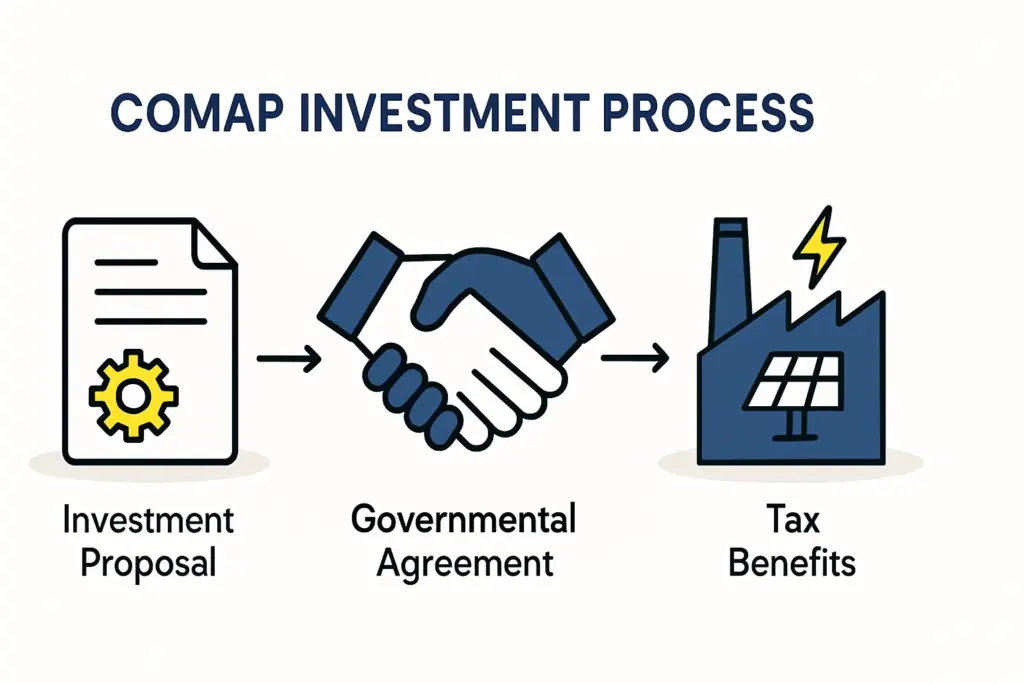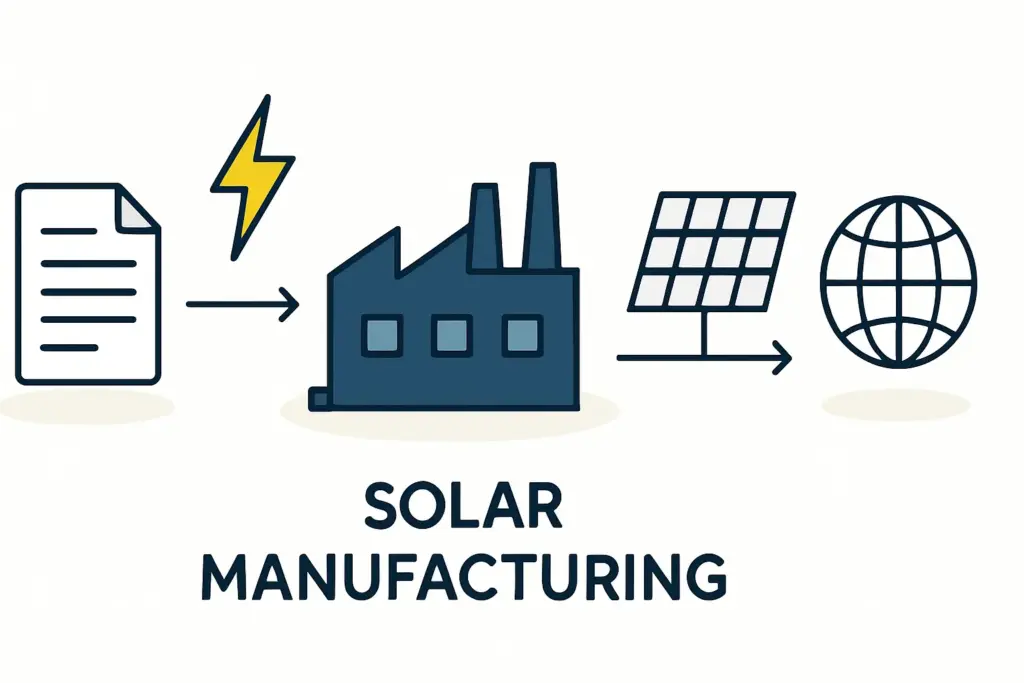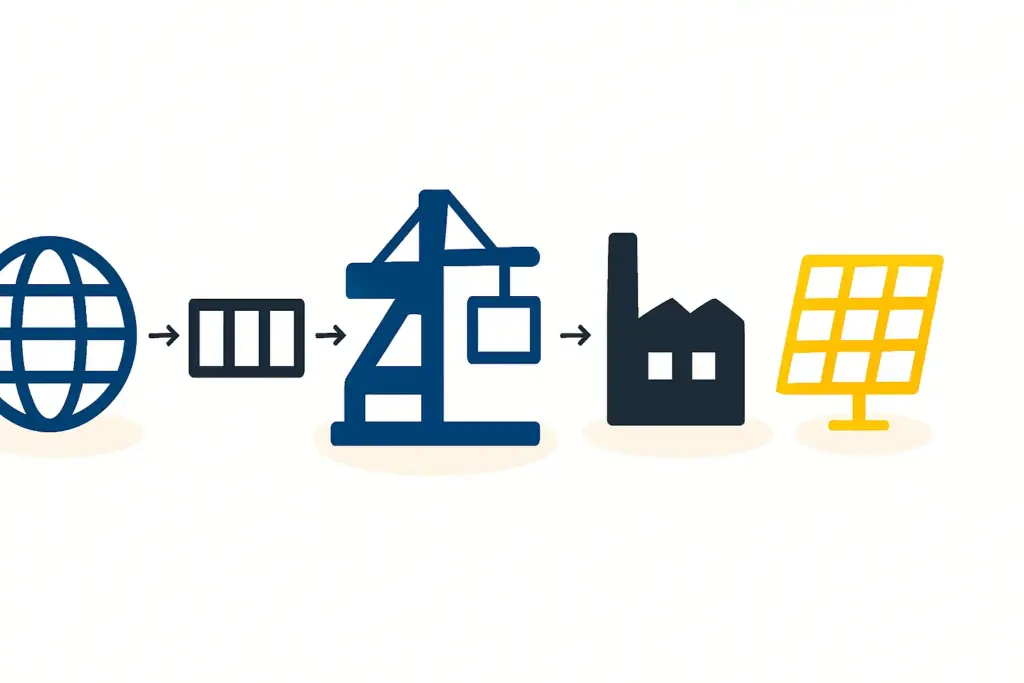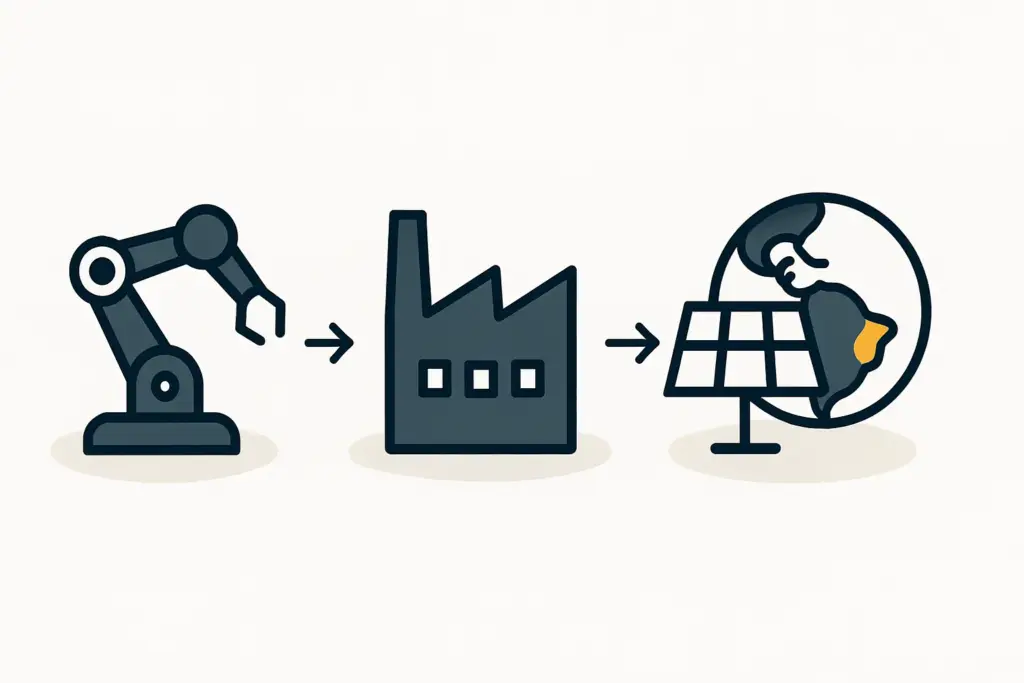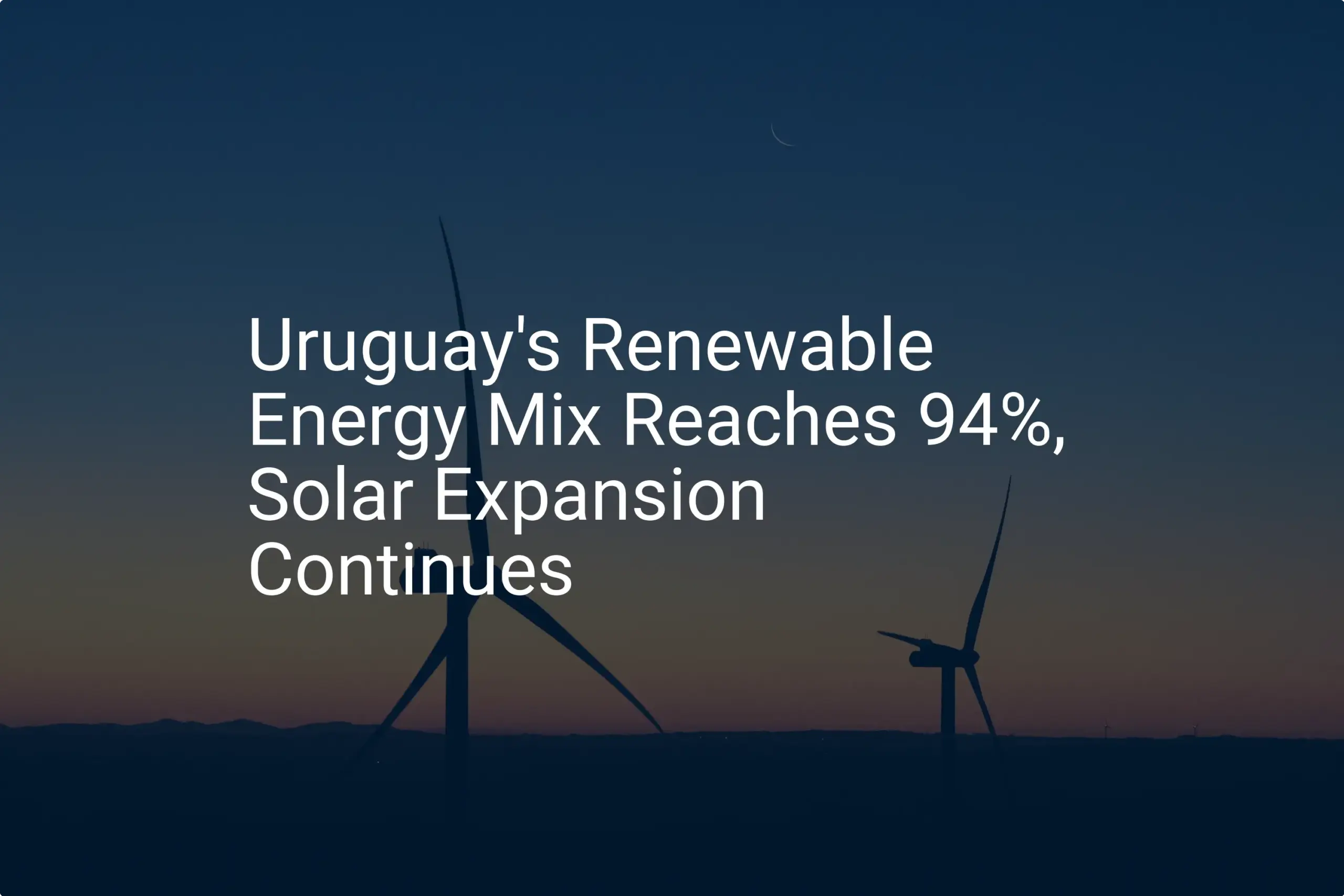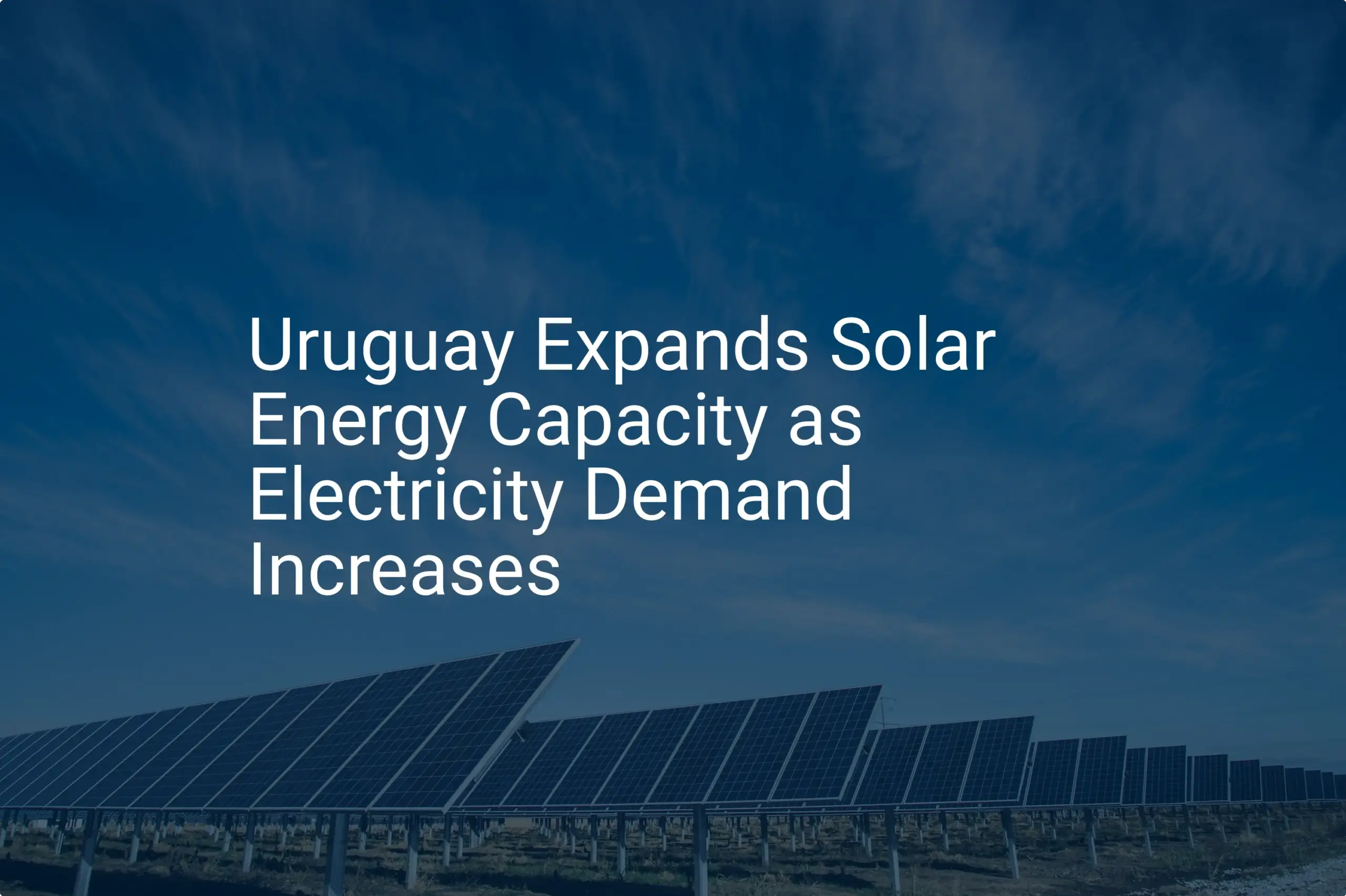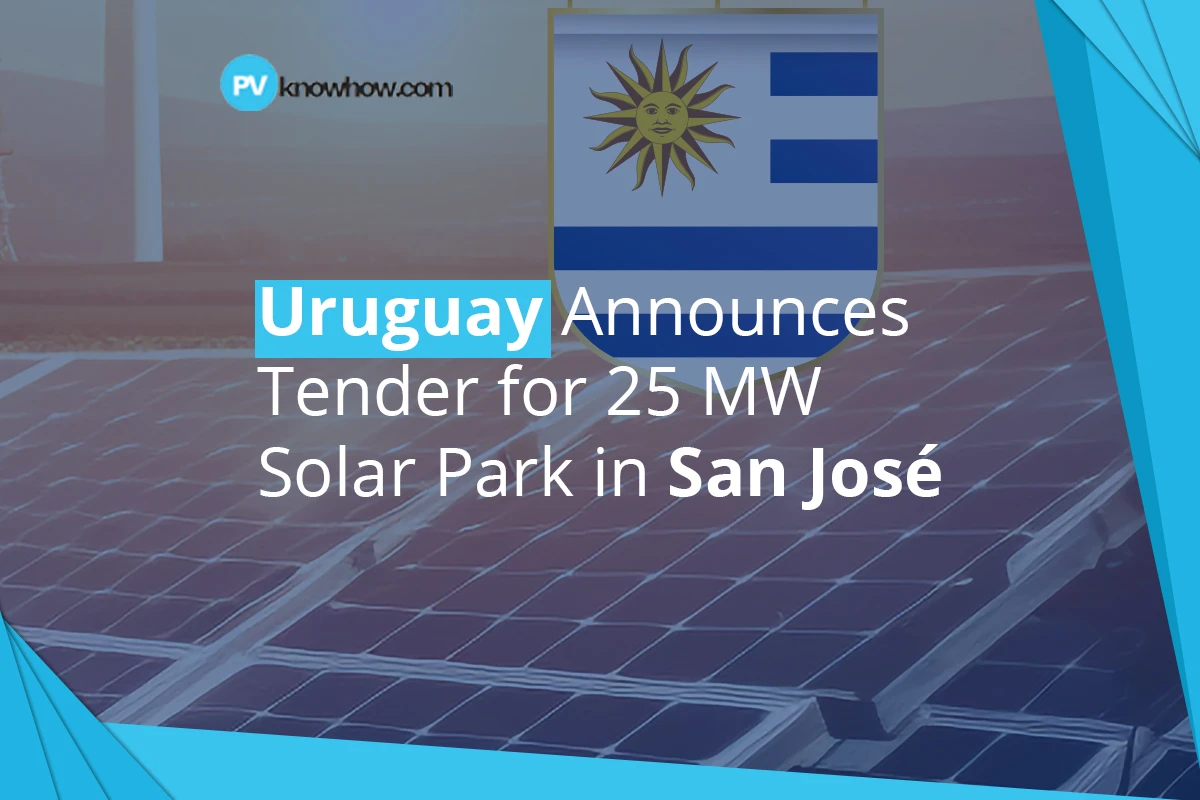Discover comprehensive insights into the statistics, market trends, and growth potential surrounding the solar panel manufacturing industry in Uruguay
- Trade. (2024). Uruguay – Country Commercial. Retrieved July 06, 2024, from https://www.trade.gov/country-commercial-guides/uruguay-renewable-energy-equipment
- Clima Temps. (2023). Sunshine & Daylight Hours in Montevideo, Uruguay. Retrieved July 06, 2024, from http://www.uruguay.climatemps.com/sunlight.php
- IRENA. (2023). Country Report Uruguay. Retrieved June 29, 2024, from https://www.irena.org/-/media/Files/IRENA/Agency/Statistics/Statistical_Profiles/South%20America/Uruguay_South%20America_RE_SP.pdf
- GlobalPetrolPrices. (2023). Uruguay Report. Retrieved June 29, 2024, from https://www.globalpetrolprices.com/Uruguay/electricity_prices/
- Seforall. (2023). Sustainable Energy For All. Retrieved June 29, 2024, from https://www.seforall.org/sites/default/files/Uruguay_RAGA_EN_Released.pdf
- 6. IRENA. IrenaStat Online Data Query Tool. (2023). Retrieved June 29, 2024, from https://pxweb.irena.org/pxweb/en/IRENASTAT/IRENASTAT__Power%20Capacity%20and%20Generation/Country_ELECSTAT_2024_H1.px/
- Statista. (2023). Electricity Production Shares By Source. Retrieved June 29, 2024, from https://www.statista.com/statistics/1373561/electricity-production-shares-by-source-uruguay/
- Our World in Data. (2023). Retrieved June 29, 2024, from https://ourworldindata.org/energy/country/uruguay
- Our World in Data. (2023). Retrieved June 29, 2024, from https://ourworldindata.org/energy/country/uruguay
- FRV. (2024). La Jacinta. Retrieved June 29, 2024, from https://frv.com/en/projects/la-jacinta-uruguay/
- Clima Action. (2023). Sky Solar Commits Solar Power in Uruguay. Retrieved June 29, 2024, from https://climateaction.org/news/sky_solar_commits_85m_to_solar_power_in_uruguay
- Renewable Snow. (2023). Enertag Unveils Wind And Solar Backed Green H2 Project in Uruguay. Retrieved June 29, 2024, from https://renewablesnow.com/news/enertrag-unveils-wind-and-solar-backed-green-h2-project-in-uruguay-784028/
- Uruguay XXI. (2023). Renewable Energies in Uruguay. Retrieved June 29, 2024, from https://www.uruguayxxi.gub.uy/uploads/informacion/03e26f104f52751bf58f236ba49624eab3ebb5d7.pdf
- Natalia D’Agosti. (2023). Residiential Solar. Retrieved July 8th, 2024, from https://congresscreator.org/system/files/papers/Residential_Solar_2023_02_28.pdf
- Blackridge Research. (2024). Uruguay Solar Power Market Outlook to 2028. Retrieved July 8th, 2024, from https://www.blackridgeresearch.com/reports/uruguay-solar-power-market
- Salary Expert. (2023). Uruguay Salary. Retrieved June 29, 2024, from https://www.salaryexpert.com/salary/job/installer-solar-energy-system/uruguay
- World Population Review (2023). Retrieved June 29, 2024, from https://worldpopulationreview.com/countries/uruguay-population
- GlobalPetrolPrices. (2023). Uruguay Report. Retrieved June 29, 2024, from https://www.globalpetrolprices.com/Uruguay/electricity_prices/
- IDB Invest. (2023). Developing the Solar Market in Uruguay – Case Study. Retrieved June 29, 2024, from https://www.idbinvest.org/en/publications/developing-solar-market-uruguay-case-study
- Solvoltaics. (2023). How Much Do Solar Panel Installers Make?. Retrieved June 29, 2024, from https://solvoltaics.com/how-much-do-solar-panel-installers-make/
- Solar Power Europe. (2023). Eu Solar Jobs Report. Retrieved June 29, 2024, from https://www.solarpowereurope.org/insights/thematic-reports/eu-solar-jobs-report-2023-1
- Guruguay. (2023). Uruguay Insurance. Retrieved June 29, 2024, from https://www.guruguay.com/uruguay-insurance/
- IRENA. (2021.) Renewable Energy Statistics 2021. Retrieved July 10,2024, from https://www.irena.org/-/media/Files/IRENA/Agency/Publication/2021/Aug/IRENA_Renewable_Energy_Statistics_2021.pdf?rev=b6e5aa20a5bc40818f55963d23ef9c5a
- Uruguay XXI. (2023). Renewable Energy in Uruguay. Retrieved July 10,2024, from https://www.uruguayxxi.gub.uy/en/information-center/article/renewable-energies/
- World Energy Council. (2023). Uruguay. Retrieved July 10,2024, from https://www.worldenergy.org/assets/downloads/Uruguay.pdf
- Climate Laws (2023). Law No. 18.585 on Solar Energy. Retrieved July 10,2024, from https://climate-laws.org/documents/law-no-18-585-on-solar-energy_49f1?id=law-no-18-585-on-solar-energy_0ba9
- Norton Rose Full Bright. (2023). Renewale Energy in Latin America. Retrieved July 10,2024, from https://www.nortonrosefulbright.com/en-de/knowledge/publications/c7fa4c24/renewable-energy-in-latin-america-uruguay
- IMPO. (2013)ç Decreto 133/013. Retrieved July 10,2024, from https://www.impo.com.uy/bases/decretos/133-201329
- Presidencia. (2023). Decreto 451/007. Retrieved July 10,2024, from https://archivo.presidencia.gub.uy/_web/decretos/2007/11/T745_19%2010%202007_00001.PDF
- IDB Invest. (2023). Developing Solar Market Uruguay Case Study Retrieved July 10,2024, from https://www.idbinvest.org/en/publications/developing-solar-market-uruguay-case-study
- Renewable Snow. (2023). To The Point Uruguay Plans Incentives for Panel Makers. Retrieved July 10,2024, from https://renewablesnow.com/news/to-the-point-uruguay-plans-incentives-for-pv-panel-makers-514302/
- Earth Island. (2021). Uruguay Shift to Renewables Blueprint for Energy Progress. Retrieved July 10,2024 https://www.earthisland.org/journal/index.php/articles/entry/uruguay-shift-to-renewables-blueprint-for-energy-progress/
- Atlas Renewable Energy. (2023). Unlocking Full Potential of Renewable Energy Investment in Partnership with Development Finance Institutions. Retrieved July 10,2024 https://pt.atlasrenewableenergy.com/unlocking-the-full-potential-of-renewable-energy-investment-in-partnership-with-development-finance-institutions/
- UNIDO. (2023). Renewable Energy Innovation Fund in Uruguay approves one million dollars in credits. Retrieved June 29, 2024, from https://www.unido.org/news/renewable-energy-innovation-fund-uruguay-approves-one-million-dollars-credits
- FRV. (2023). Retrieved June 29, 2024, from https://frv.com/en/projects/la-jacinta-uruguay/
- Power Technology. (2023). Power Plant Profile Alto Cieolo Solar PV Park Uruguay. Retrieved June 29, 2024, from https://www.power-technology.com/data-insights/power-plant-profile-alto-cielo-solar-pv-park-uruguay/
- Solaria Energia. (2023). Natelu Solar Park. Retrieved June 29, 2024, from https://solariaenergia.com/en/solaria-energia-y-medio-ambiente-s-a-natelu-s-a-the-second-solar-plant-of-solaria-in-uruguay-obtains-the-definitive-start-up-certificate-from-local-utility-ute/
- Power Technology. (2023). Pampa Solar Park Retrieved June 29, 2024, from https://www.power-technology.com/data-insights/power-plant-profile-pampa-wind-farm-uruguay/
- Energy News. (2023). Durazno Solar Park. Retrieved June 29, 2024, from https://www.energynews.com/uruguay-durazno-solar-park/
- Power Technology. Cerro Largo Solar Park. Retrieved June 29, 2024, from https://www.power-technology.com/data-insights/power-plant-profile-cerro-grande-wind-farm-uruguay/
- UTE. (2024). About us. Retrieved June 29, 2024, from https://www.ute.com.uy/
- FRV. (2024). Retrieved June 29, 2024, from https://frv.com/en/about-us/
- Atlas Renewable Energy. (2024). About Us. Retrieved June 29, 2024, from https://www.atlasrenewableenergy.com/about
- Solar Pack. (2024). Retrieved June 29, 2024, from https://www.solarpack.es/en/us/
- Enel Green Power. (2024). Retrieved June 29, 2024, from https://www.enelgreenpower.com/who-we-are
- Abengoa. (2024). About Us. Retrieved June 29, 2024, from https://www.abengoa.com/web





